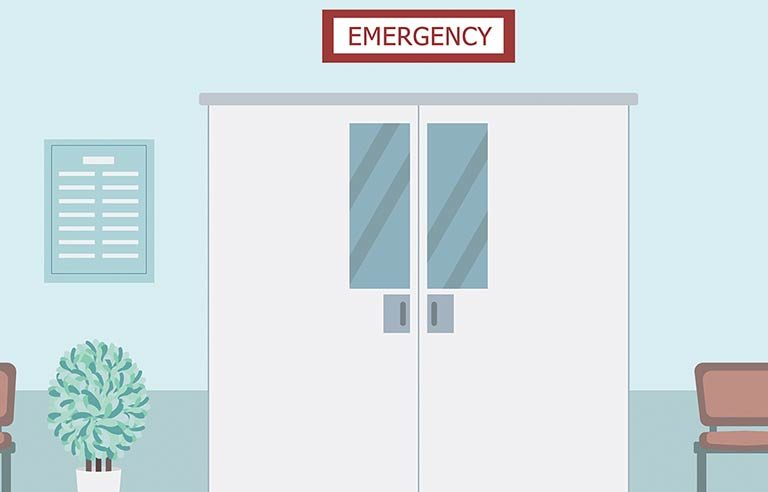Don’t avoid emergency care
Worried about COVID-19? Experts say ER staff know how to keep you safe

Stroke
As a stroke program director, Coomes is uniquely aware of how important time is when it comes to stroke symptoms: trouble speaking or walking, one side of the face drooping or becoming numb, and weakness in the arms.
“If you have a stroke, I’ve got a window of three to four-and-a-half hours to see you, do my evaluation and get you treatment to give you the medicine needed to reverse those symptoms,” he said.
This means any delay in care can be potentially devastating.
“If I can’t treat you in that window that I have, you could end up with those symptoms the rest of your life, which is really scary,” Coomes said.
Bleeding
Whether it’s a nosebleed or caused by a severe injury, persistent bleeding should concern you because it can have serious consequences.
“Even a nosebleed can be dangerous for some patients, depending on the situation,” Coomes said. “Any bleeding that is persistent can be dangerous. Sometimes it’s obvious right away if it’s a dangerous bleed, but sometimes it’s not.”
Severe pain
When it comes to experiencing pain, anything that’s persistent, you can’t explain or you’re having for the first time deserves attention.
“If it’s particularly bothersome or comes on acutely, coming to the emergency department is never the wrong decision,” Coomes said.
COVID-19
The same reason you might be staying away from the ER is the exact reason you should go. COVID-19 can advance rapidly, so seeking emergency care is important. The symptoms to pay special attention to, according to the ACEP, include fever, difficulty breathing, fatigue, loss of taste or smell, muscle or body aches, and sore throat.
“They probably think they’re walking into a petri dish,” Kraus said of anxious ER visitors. “But we go in and work every day, caring for patients with known COVID and take all the precautions. We’re going to take those same precautions for anybody who walks through our door.”
Coomes added: “If your instincts are telling you that you’re having a medical emergency, you should go.”
Some people fear embarrassment, thinking, “What if I go to the ER and my symptoms turn out to be nothing to worry about?” Don’t be concerned about that, Coomes said.
“Our job is to figure it out, and that’s what we’re trained for,” he said. “We’re not going to give you a hard time or tell you that you’re silly. I’m really glad when I can tell you everything’s OK and send you home.”
Post a comment to this article
Safety+Health welcomes comments that promote respectful dialogue. Please stay on topic. Comments that contain personal attacks, profanity or abusive language – or those aggressively promoting products or services – will be removed. We reserve the right to determine which comments violate our comment policy. (Anonymous comments are welcome; merely skip the “name” field in the comment box. An email address is required but will not be included with your comment.)
